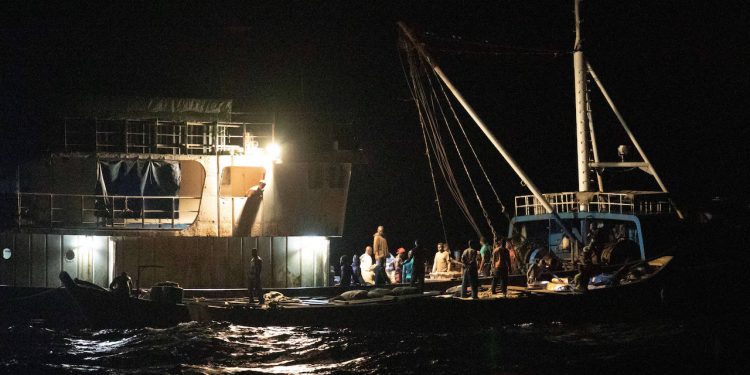Ghana was first issued with a yellow card by the EU in 2013, which was lifted in 2015 as a result of new legislation and a clear fisheries management plan. While these policies are well constructed, they have not been implemented or enforced, and now the European Commission has given Ghana a clear warning by issuing a second yellow card.
The Ghanaian government’s failure to tackle illegal fishing and the consequent yellow card constitute a formal warning that could lead to a seafood export ban to the EU.
The decision is based on various shortcomings in Ghana’s ability to comply with its duties under international law as flag, port, coastal or market State.
‘The Commission stands for zero tolerance for IUU fishing. Ghana plays an important role in fisheries governance in West Africa,’ commented EU Commissioner for Environment, Maritime Affairs and Fisheries Virginijus Sinkevičius.
‘Therefore, we stand ready to work with Ghana to address the threats IUU fishing poses to the sustainability of fish stocks, coastal communities, food security and the profits of those fishermen and – women who follow the rules. Sustainable fisheries is key to better ocean governance.’
According to the EU Commission, Ghana’s identified shortcomings include illegal transhipments at sea of large quantities of undersized juvenile pelagic species between industrial trawl vessels and canoes in Ghanaian waters, deficiencies in the monitoring, control and surveillance of the fleet and a legal framework that is not aligned with the relevant international obligations Ghana has signed up to. The sanctions imposed by Ghana to vessels engaging in or supporting IUU fishing activities are not effective and not an adequate deterrent.
‘The recently appointed Fisheries Minister must break with the past to enforce Ghana’s own laws and eradicate illegal fishing, while ensuring transparency across the industry that will expose illegal operators and reward those who abide by the law,’ states NGO Environmental Justice Foundation (EJF).
According to EJF, there is a significant lack of transparency to Ghana’s fishing industry which allows illegal operators to disguise the identity, ownership and history of fishing vessels, avoiding detection and sanctions.
‘As a result, illegal fishing is rife and vast over-capacity in the fishing fleet continues to decimate fish stocks,’ EJF states, pointing out that around 90% of Ghana’s industrial fishing trawlers are owned by Chinese corporations despite foreign ownership or control being illegal.
EJF CEO Steve Trent claims that Ghana is losing out on up to $23.7 million in revenue every year, and fines for illegal fishing – often linked to Chinese companies – are often below even the minimum stipulated by Ghanaian legislation and do not meet Ghana’s responsibilities under international law.
‘Now is the time to eradicate illegal fishing in Ghana once and for all. Saiko is precipitating a human and ecological crisis, with fish stocks on the brink of collapse and livelihoods and food security on the line. Ghana has the means to end saiko, and it is important that it takes steps to do so immediately,’ Steve Trent said.
‘Transparency is a low-cost, highly effective means to tackle illegal fishing, improve accountability and support meaningful participation in decision-making. Simple measures that Ghana can take today include publishing fishing licence lists and punishments for illegal fishing – where the true ‘beneficial’ owners are clear in both cases. President Nana Akufo-Addo should look to secure a legacy that will safeguard Ghanaian jobs and food security.’
A trawler engaged in an illegal saiko transshipment. Image: EJF









